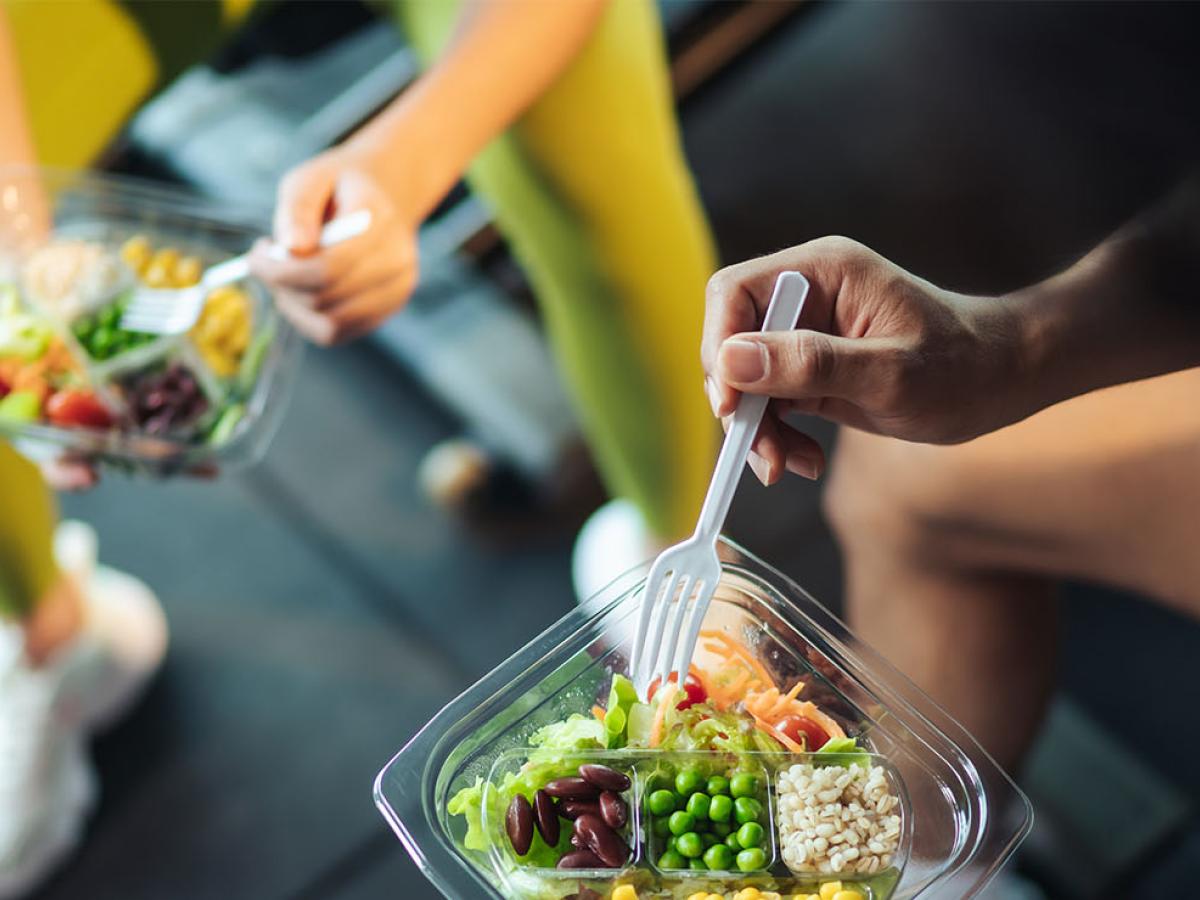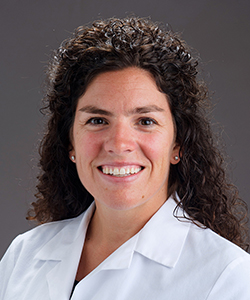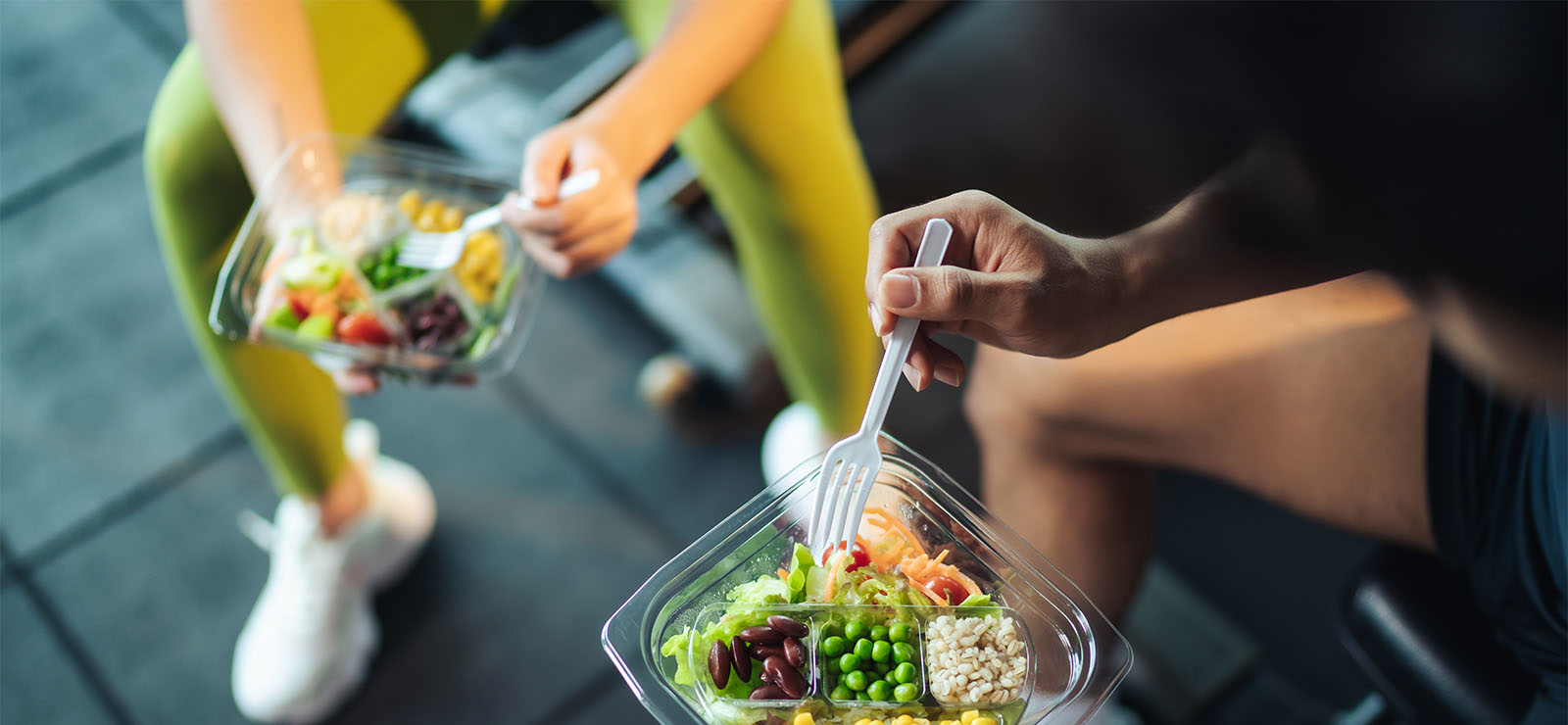March 19, 2025

Anyone who’s eaten an entire pint of ice cream in one sitting can tell you that what you eat affects how you feel and function. Diet and nutrition are especially important for athletes who need the right kind of energy to perform at the highest level.

“Food is fuel for humans, similar to how a car needs gas,” says Tiffany Bohon, MD, a family medicine doctor who specializes in sports medicine at MU Health Care. “You need it just to live. But if you are an athlete and don’t fuel appropriately, your body may not perform as well as you’d like.”
So, what does it mean to “fuel appropriately”? That’s different for every person, Dr. Bohon says. It depends largely on age, sex, goals, metabolism and dietary preferences.
If you want to know if you (or your child athlete) are fueling appropriately, the best thing to do is take a thoughtful look at what you’re doing and how it’s working. Then, tweak it if necessary or reach out to a health care professional for personalized guidance.
Dr. Bohon recommends all athletes ask themselves the following questions:
How Well Are You Performing?
An athlete’s dietary habits shouldn’t be about maintaining a specific size — after all, athletes come in all shapes and sizes. How you perform is a better indicator of whether you’re fueling effectively.
Dr. Bohon adds that most collegiate and high-level athletes don’t struggle with over-fueling; under-fueling is more common. They train multiple hours a day and don’t consume enough calories and nutrients to keep up with what they’re doing.
“If you notice that your performance is falling off or you are struggling to keep up during practices and training, that’s a clue you might either be overtraining or not fueling enough,” she says. “But if you feel good, perform well and don’t get injured, it’s reasonable to stick with what’s working.”
If you’re eating and hydrating enough, but still aren’t performing well, look at what you’re eating and when. Dr. Bohon generally recommends that athletes:
- Avoid fasting before exercise
- Avoid high fiber and fat before training or competition
- Eat carbohydrates and protein before and after training or competition
Remember, general recommendations aren’t necessarily right for everyone. Each individual athlete needs to find what’s best for them.
What Is Your Goal as an Athlete?
How you should fuel is specific to what you hope to achieve physically. “Nutrition for athletes can be a delicate balance,” Dr. Bohon says. “Beyond your metabolic needs, you also need to consider what your sport entails and where you are in your season.”
In general, your diet may depend on what type of athlete you are. For example:
- Endurance athletes may want to fuel with carbohydrates throughout the event to keep their tank full.
- Resistance training athletes may need to eat more protein to help with muscle gain and recovery.
- Team athletes playing multiple games a day might focus on sustaining themselves with small amounts of carbohydrates frequently throughout the day.
No matter what your goals are, Dr. Bohon says that athletes need all three macronutrients (protein, fat and carbohydrates) in their diets. But the ratio of those macronutrients can vary from person to person. For recommendations specific to your body and athletic goals, a registered dietitian may help.
“Dietitians have an unbelievable depth of knowledge,” Dr. Bohon says. “Not everyone requires that level of guidance, but it’s definitely recommended for competitive athletes struggling to fuel effectively.”
How Is Your Overall Health?
Performance and athletic goals are two pieces of the puzzle, but don’t forget to look closely at your health. You could be generally performing well and still struggle with health challenges.
“Many physiologic processes are affected when you aren’t fueling appropriately,” Dr. Bohon says. Medical conditions, such as the female athlete triad, suggest that the body can break down when chronically under-fueled.
Signs that you may not be fueling adequately include:
- Frequent muscle cramping
- Menstrual dysfunction or not getting periods
- Multiple soft tissue injuries
- Poor immunity or getting sick often
- Recurrent stress fractures
- Fatigue
If you’re worried that sports-related dietary restrictions are affecting your health or your child’s, consider involving a health care professional. They can evaluate your diet, make recommendations and provide treatment if needed.
Are You Fueling Your Body for Games and Practices?
The most effective way to fuel yourself for a game or competition is to see the big picture. That means fueling yourself the right way every day, not just in the hours leading up to the main event.
“If you do a good job fueling yourself all the time, it’s going to help your performance and take the pressure off when the time comes to compete,” Dr. Bohon says. “Some athletes get so excited on game day that they throw up. Knowing what helps you perform and what food you tolerate sets you up for success.”
Need another reason to fuel yourself or your child consistently? More than 60% of organized sports-related injuries occur at practices and training, as opposed to games or competitions. Regularly getting essential nutrients can reduce the risk of injury.
Do You Fuel Your Body With Whole Foods?
When considering what you put in your body, whole foods are always a good choice.
“I encourage athletes (and all people) to have a food-first mentality,” Dr. Bohon says. “If you lack a vital nutrient, it’s okay to supplement. But if you can fuel with real food, that should be the priority.”
Dr. Bohon provides her thoughts about two supplements commonly used by athletes of all ages and levels:
- Electrolytes: Sports drinks and electrolyte powders are unnecessary if you exercise for less than an hour or aren’t sweating. Most casual athletes can get the electrolytes they need from their food. If you do need electrolytes, avoid sports drinks with high sugar content and unnecessary ingredients.
- Protein powder: Food can provide all the protein you need — even if you eat a plant-based diet. Protein powder can be a good option if you can’t get enough protein from food. But always opt for whole foods first.
“It all comes back to eating a well-balanced diet,” Dr. Bohon says. “As an athlete, you need to figure out what your body needs and tolerates while remembering that how you fuel yourself may be completely different from the people around you.”
Next Steps and Useful Resources
- Want to discuss more with a sports medicine doctor? Find one today.


